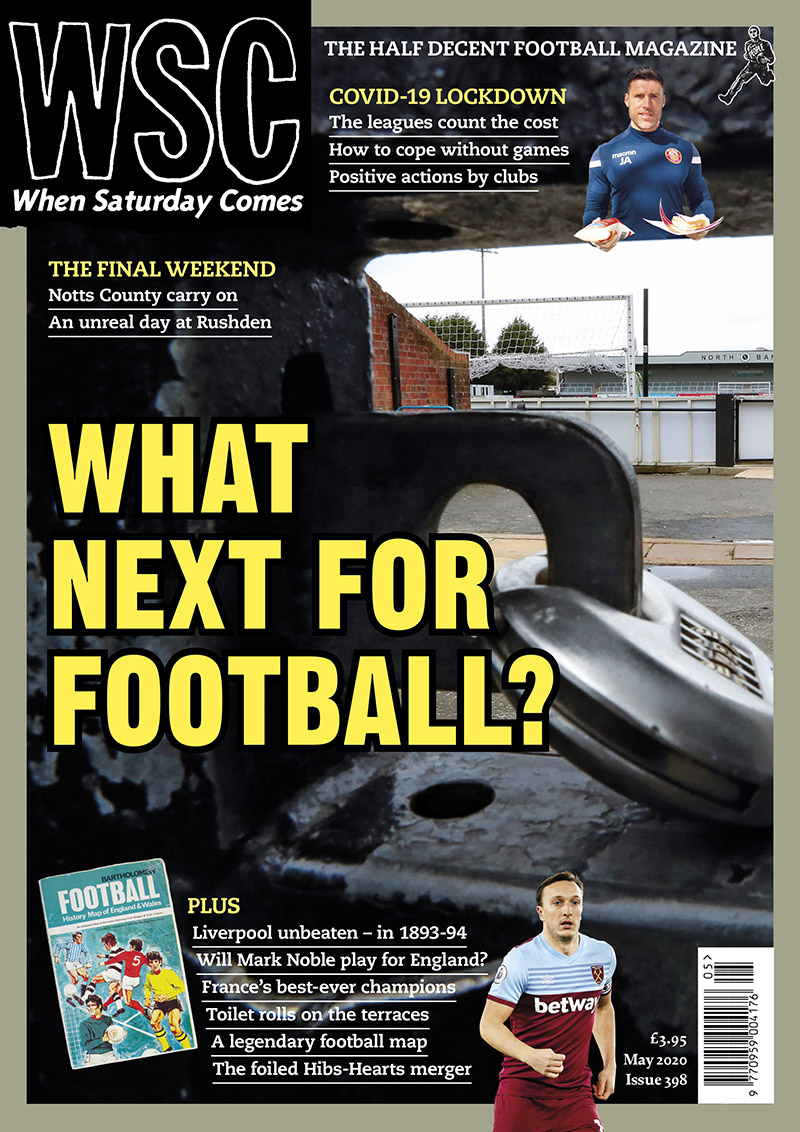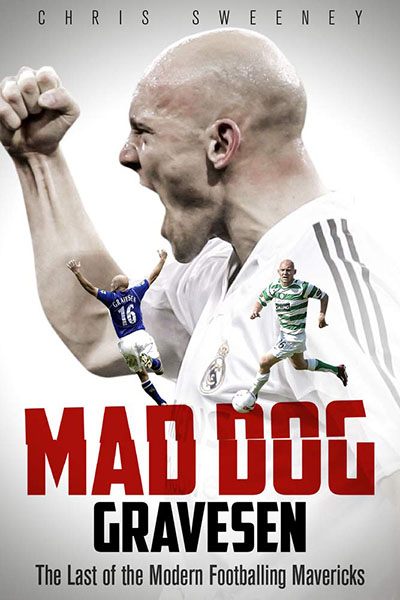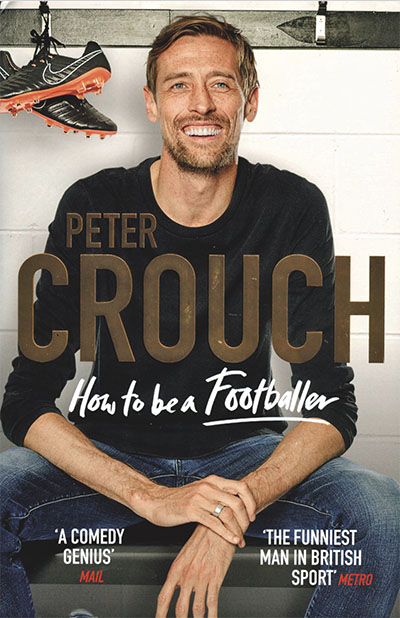Search: ' Fabio Capello'
Stories
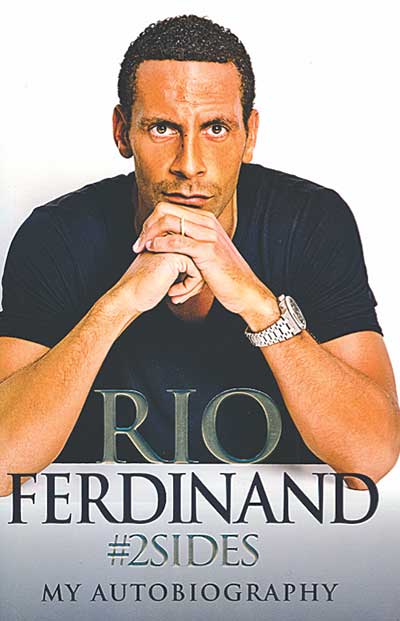 My autobiography
My autobiography
by Rio Ferdinand
Blink Publishing, £20
Reviewed by Jonathan O’Brien
From WSC 334 December 2014
At the time of writing, media speculation was rife that Rio Ferdinand’s brief spell at Loftus Road would soon be brought to an end, with QPR reportedly left cold by the 35-year-old’s efforts since he joined them from Manchester United last July. Should the press scuttlebutt be true, it will be a somewhat shabby end to what’s been an excellent career. For all his intermittent inanity off the pitch, Ferdinand remains, alongside Tony Adams, the best centre-half produced by English football since Bobby Moore.
It’s hard to tell whether #2Sides would have been a superior book had Ferdinand employed a different ghostwriter (the one he did hire, David Winner, has taken an unconventional approach to the form, as we shall see). The title, a nod to his fondness for spending hours on Twitter, immediately makes the heart sink – and for the most part, the contents are similarly disappointing. In fact, it’s less a memoir and more a succession of disparate polemics on Ferdinand’s most cherished (or, in the case of John Terry, least cherished) topics, presented with few concessions to the concept of basic chronology.
Ferdinand has been a sufficiently voluble presence in the media over the years for you to more or less know in advance what his take on each subject will be. Fabio Capello and Roy Hodgson are duly slammed. So is David Moyes for his miserable ten months as Manchester United manager, though in this case Ferdinand does leaven the harsh criticism with unstinting praise for Moyes as a person (as well as revealing that the alleged “Do it like Phil Jagielka would” exchange on the training ground never actually happened). The details of his now-terminal rift with Ashley Cole, ignited when Cole gave evidence in favour of Terry, are rendered in almost sorrowful terms.
But #2Sides suffers woefully from its utter absence of structure. No sooner has Ferdinand finished talking about the Terry racist abuse trial or the 2008 Champions League final or a title race, than we’re off into a digression about the restaurant he co-owns, or his favourite music (grime and corporate rock), or something equally thrilling. There’s even a chapter devoted solely to that Twitter account, entitled “5.7 Million And Counting”. It’s not up to much.
If you’re wondering why #2Sides has little discernible structure or cohesion, it’s worth mentioning that Winner has form for this approach. In Brilliant Orange, his award-winning 2001 study of Dutch football, the author gave the chapters random “squad numbers” for whimsical reasons. It worked very well on that occasion, but a number of his more recent books – Those Feet, Around The World In 90 Minutes – have been misfires, and so is this. Winner ghostwrote #2Sides immediately after finishing Dennis Bergkamp’s memoir Stillness And Speed, so there may or may not have been an element of racing to beat the clock.
By far the most substantial chapter comes early on, where Ferdinand explains his approach to the art of defending, going into fascinating detail about how he could “smell out” one kind of attacking danger and his long-time partner Nemanja Vidic could scent another. A penny for Tony Fernandes and Harry Redknapp’s thoughts if they read it.
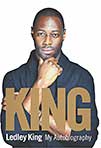 Ledley King: My autobiography
Ledley King: My autobiography
by Ledley King
and Mat Snow
Quercus, £18.99
Reviewed by Alan Fisher
From WSC 328 June 2014
The title of the opening chapter of Ledley King’s autobiography sums it up in two little words: “What If?” He was the perfect contemporary centre-half, with pace, strength, total application and his trademark timing in the tackle as he eased the ball away from onrushing forwards. It was a talent that should have brought him worldwide fame. Instead he spent half his career on the treatment table.
His fortitude in pain and loyalty to the only club he has ever played for has earned him the enduring respect of Spurs fans. An unending saga of breakdown and comeback meant his hopes were rebuilt then crushed as often as his knee, yet King does not show a trace of self-pity; despite agony, disappointment and upheaval at his club, he was grateful for the chance to play.
For virtually half his career King did not train. When his knee was rebuilt, he remodelled his running style. One report suggested that toward the end, his knee was so bad he couldn’t have a garden kickabout with his young son yet come matchday he was often a match for the very best.
Co-author, journalist and Spurs fan Mat Snow utilises a conversational style which gives the book a sense of authenticity, especially in the early passages about King’s upbringing on an east London council estate by a single mother and surrounded by a supportive network of family friends. King has some interesting reflections on the fine margins between success and failure at this level, concluding that attitude and family stability are more significant than ability.
It seems to be out of character to be critical of those around him so expect few revelations. Nonetheless, King sheds some light on the footballing culture differences between Fabio Capello and his squad and confirms years of managerial turmoil at Tottenham, with Glenn Hoddle distant and unable to communicate while first-team coaches Martin Jol and Gus Poyet actively undermined their managers, Jacques Santini and Juande Ramos respectively.
While there’s plenty of interest to Spurs supporters, King played during a largely undistinguished period in the history of club and country so other potential readers may be deterred by a book where the highlight is a League Cup final win and a world tour of physiotherapists. Gradually the dreary routine of daily treatment catches up on body and mind. He plays down the two nightclub altercations that thrust him uncharacteristically into the headlines but there’s no doubt they were linked to the loss of what had mattered most to him since he was a boy – the realisation that he can’t play on and the end of his camaraderie with team-mates. If King has regrets, he hides them well. It’s left to the reader to speculate about those “what ifs?” on his behalf.
